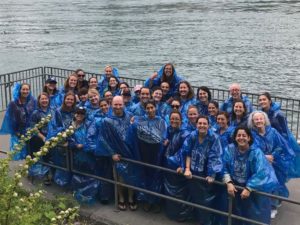Jews of Color in the U.S. are a growing population but have been systematically undercounted in decades of American Jewish population studies, claims a new report by the Jews of Color Field Building Initiative, The Concentration in Education and Jewish Studies at the Stanford Graduate School of Education, and the Swig Program in Jewish Studies and Social Justice at the University of San Francisco. Researchers of the report, Counting Inconsistencies: An Analysis of American Jewish Population Studies, with a Focus on Jews of Color, drew this conclusion after examining data from 25 national or local population studies, and the survey strategies deployed to collect it.
Given inconsistencies in how population studies have been conducted, researchers can, at best, make only an educated guess about the population of Jews of Color in the United States.
- Based on the three most comprehensive data sets available (the 2013–2019 American Jewish Population Project, the 2011 New York Community Study, and the 2017 San Francisco Bay Area Community Study) researchers estimate that Jews of Color represent at least 12-15% of American Jews, or about 1,000,000 of the United States’ 7,200,000 Jews.
- More younger people identify as nonwhite than older people do. With cohort replacement, this means that the future of American Jewry is racially diverse.
- Even with data that undercounts Jews of Color, as younger, more racially and ethnically diverse cohorts replace older, more homogeneous ones, our understanding of the basic racial and ethnic makeup of the American Jewish community will change.
Everyone in the Jewish community, but especially the community’s leaders and organizers, must understand the full and diverse picture of the American Jewish population today. Our community is changing and evolving in many ways, including its racial composition. This change should have a deep influence in how we think about resource allocation, programming, outreach efforts and more. – Ilana Kaufman, Director of the Jews of Color Field Building Initiative.
Counting Inconsistencies notes that at a minimum, more than 20 percent of “Jewish households” include people who identify as nonwhite. If the population trends along the same lines as the U.S. Census, then some decades from now Jews of Color will become the majority of U.S. Jews. Yet, American Jewish Population Surveys have largely neglected to systematically and consistently ask about the racial and ethnic identities of U.S. Jews, resulting in a dearth of information about the composition and size of the population of Jews of Color. By extension, Jews of Color have been omitted from Jewish communal life, due in part to the socially constructed notion that the vast majority of American Jews identify as “white.”
There simply is no guiding principle that researchers used in these population studies with respect to accurately asking about and subsequently counting Jews of Color. As more American Jews identify as non-white, the survey inconsistencies and lack of clarity in this area becomes a more critical problem that needs to be appropriately addressed. – Dr. Ari Kelman of Stanford University and the lead researcher of Counting Inconsistencies.
Some previous Jewish population surveys did not ask about race or ethnicity at all. Other survey designs sampled respondents in ways that likely result in undercounting Jews of Color, including sampling “distinctive Jewish names,” relying heavily on Jewish community lists, and/or only including “Jews by religion.” And some survey questions inconsistently inquired about race and ethnicity. Sometimes, both questions and responses confuse family origin, racial, ethnic, national, and even denominational identities.
Even with past survey issues, we have a picture now of what the American Jewish community will look like over the next several decades. The simple fact is we will be more diverse than ever. How are we going to welcome in and engage people from different backgrounds, interests, and experiences? Those are the big questions facing our community. – Ilana Kaufman
Counting Inconsistencies includes a set of recommendations for future research to follow to ensure more accurate counting of Jews of Color, including using more racially inclusive, sensitive sampling strategies and frames that do not rely significantly on self-identified “Jews by Religion,” “Distinctive Jewish Names,” and/or community organization affiliations; partnering with other regions or organizations to, as teams, develop language for racial identity questions; and developing consistency across survey question language reflecting best practices and how Jews of Color identify rather than how researchers identify Jews of Color; among other recommendations.
Kaufman shared the findings in Washington, DC at the Religious Action Center 2019 Consultation on Conscience, and at the UJA-Federation of New York. She will share them June 6 at the Jewish Federation of Greater Los Angeles, and June 26 via a webinar with Dr. Ari Kelman.
Along with Dr. Kelman, researchers included Dr. Aaron Hahn Tapper, University of San Francisco; Ms. Izabel Fonseca, Stanford University; and Dr. Aliya Saperstein, Stanford University.
This research is the result of a partnership between The Jews of Color Field Building Initiative, The Concentration in Education and Jewish Studies at the Stanford Graduate School of Education, and the Swig Program in Jewish Studies and Social Justice at the University of San Francisco. The Jews of Color Field Building Initiative is funded by the Leichtag Foundation, the Walter and Elise Haas Fund, the Jim Joseph Foundation, the One8 Foundation, the Charles and Lynn Schusterman Family Foundation, and the Harry and Jeanette Weinberg Foundation. The study was supported by the Harry and Jeanette Weinberg Foundation.
Counting Inconsistencies is a meta-study that examined 15 local and community studies (Los Angeles 1997, Seattle 2000, Phoenix 2002, Atlanta 2006, Denver Boulder 2007, Philadelphia 2009, Chicago 2010, Cleveland 2011, New York 2011, Miami 2014, Boston 2015, Pittsburgh 2017, SF Bay Area 2017, and Washington DC 2017); seven national population studies (National Jewish Population Study (NJPS) 1970, NJPS 1990, National Survey of Religious Identity 1990, NJPS 2000, Heritage and Religious Identification 2002, Pew Research Center Survey of U.S. Jews 2013, and the American Jewish Population Project), and four population specific studies (Generation Now, Generation Next, Jewish Futures Project, and Hillel International Research on College Students.)
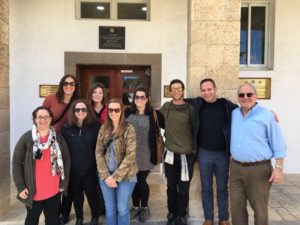 expanded programming and strengthened its organization. New programs such as
expanded programming and strengthened its organization. New programs such as 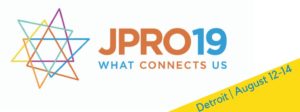
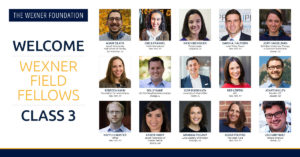
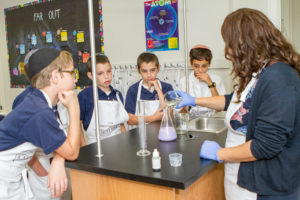 Core to Prizmah’s success—and the success of Jewish day schools, educators, leaders, and students—is the recognition that schools and communities are inherently linked. Together, they form a virtuous cycle, wherein investments in the key aspects of thriving Jewish day schools reinforce and embolden one another. Prizmah supports North American Jewish day schools and communities of all sizes and denominations to tackle the diverse needs and challenges of day schools on their path to success. This vision embraces the passion of schools’ leaders and educators, as well as the educational and philosophical differences of schools, which Prizmah serves according to their individual needs.
Core to Prizmah’s success—and the success of Jewish day schools, educators, leaders, and students—is the recognition that schools and communities are inherently linked. Together, they form a virtuous cycle, wherein investments in the key aspects of thriving Jewish day schools reinforce and embolden one another. Prizmah supports North American Jewish day schools and communities of all sizes and denominations to tackle the diverse needs and challenges of day schools on their path to success. This vision embraces the passion of schools’ leaders and educators, as well as the educational and philosophical differences of schools, which Prizmah serves according to their individual needs.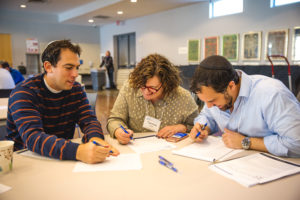 While striving for vibrancy, Jewish day schools also face significant challenges. The changing academic, social, and technological needs of today’s youth create need and opportunity to re-think education—just as the demographics, dynamics, and institutions of Jewish communities are also changing. As the cost of education rises and many incomes stagnate, the struggle to provide an affordable Jewish education to all who want it grows, leading to challenges in enrollment. Prizmah creates the space and environments for days schools to explore these challenges and seek solutions together.
While striving for vibrancy, Jewish day schools also face significant challenges. The changing academic, social, and technological needs of today’s youth create need and opportunity to re-think education—just as the demographics, dynamics, and institutions of Jewish communities are also changing. As the cost of education rises and many incomes stagnate, the struggle to provide an affordable Jewish education to all who want it grows, leading to challenges in enrollment. Prizmah creates the space and environments for days schools to explore these challenges and seek solutions together.
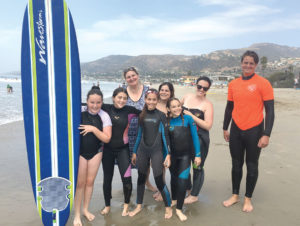 ay leaders, professionals and parents all directly and indirectly impact teen engagement. Especially in their the early teen years, parents require targeted marketing and outreach. Critically, the teen initiatives recognize that parents themselves often seek a supportive community to support their parenting, and many of the initiatives now offer workshops and community-building activities for parents.
ay leaders, professionals and parents all directly and indirectly impact teen engagement. Especially in their the early teen years, parents require targeted marketing and outreach. Critically, the teen initiatives recognize that parents themselves often seek a supportive community to support their parenting, and many of the initiatives now offer workshops and community-building activities for parents.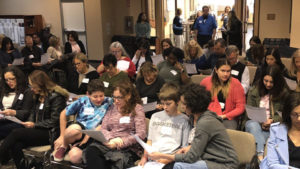 hole teen, including their mental health and overall wellness, is emerging as foundational to effective Jewish teen education and engagement. Several communities offer workshops or conferences on adolescent development and family systems, deeper understanding of the social forces impacting teens today, and specialized training for educators in youth mental health first aid. By addressing and elevating teen wellness, Funder Collaborative communities are pioneering a new, holistic view of engagement work, with healthy, balanced and resilient teens at the center.
hole teen, including their mental health and overall wellness, is emerging as foundational to effective Jewish teen education and engagement. Several communities offer workshops or conferences on adolescent development and family systems, deeper understanding of the social forces impacting teens today, and specialized training for educators in youth mental health first aid. By addressing and elevating teen wellness, Funder Collaborative communities are pioneering a new, holistic view of engagement work, with healthy, balanced and resilient teens at the center.